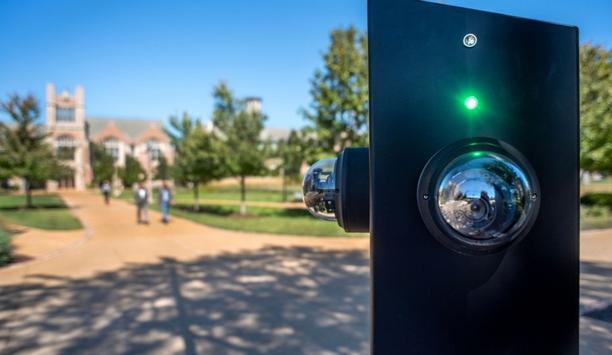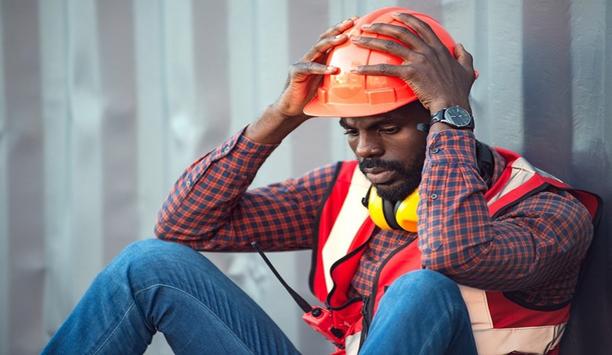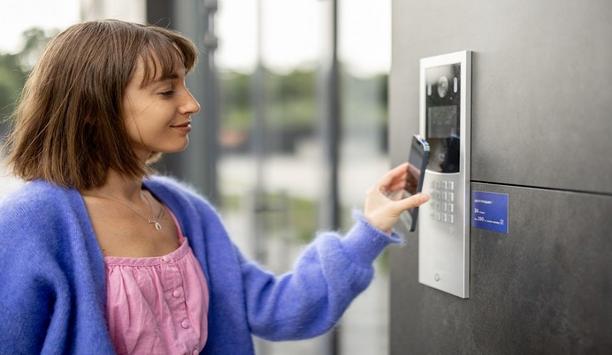Institute security - Round table discussions
College campuses are meant to be places of learning, growth, and community. Fostering such an environment requires the deployment of policies and technologies that ensure safety and security. Considering the growing role of security technology in the higher education market, we asked this week’s Expert Panel Roundtable: What are the new applications for security technology in the college and university markets?
There is safety in numbers, or so the expression goes. Generally speaking, several employees working together tend to be safer than a single employee working alone. Even so, some environments require that workers complete their jobs alone, thus presenting a unique combination of security vulnerabilities. The U.S. Occupational Safety and Health Administration (OSHA) defines a lone worker as “an employee working alone, such as in a confined space or isolated location.” We asked this we...
Headlines of violence in our schools are a reminder of the need to keep educational institutions safe. In fact, if there is a positive aspect to the constant bombardment of headlines, it is that it keeps our attention perpetually focused on how to improve school security. But what is the role of physical security systems? As the new school year begins, we asked this week’s Expert Panel Roundtable: Are schools safer because of physical security systems? Why or why not?
As physical security technologies become more complex, it is incumbent on the dealer/integrator to have the skills and expertise needed to ensure that a system operates smoothly. The value of integrators increasingly rests on the skill sets they bring to bear when installing a system. If the skills are missing, there is a problem. We asked this week’s Expert Panel Roundtable: What missing skills among security integrators can cause problems for customers?
Driving the smart homes market is the convenience of simple technology solutions. Almost every home now has a “smart speaker” that makes it easier than ever for homeowners to interface and control their technology. But where does security fit into the new landscape of smart home systems? We asked this week’s Expert Panel Roundtable: What’s new in smart homes and residential security systems?
Historically, the emphasis of security systems has been on reactivity, whether it’s providing video evidence of an incident or data to support a resulting investigation. Reactivity is core to impactful security, but increasingly, systems are also seeking to be more proactive. A proactive system seeks to prevent events from happening in the first place, thus mitigating the harm to an organisation, and making the need for a reactive response moot. We asked this week’s Expert Panel Roun...
The role of the integrator/installer in the physical security marketplace is shifting as technologies evolve and applications expand. Integrators are being faced with a need to augment their expertise both in a wider range of systems and deeper into the specifics of each increasingly complex technology. At the end of the day, it falls to the integrator/installer to ensure a system performs as promised, however much a consultant or even a manufacturer might be involved in the process. We asked th...
Deployed across a wide range of devices, the Internet of Things (IoT) collects data to help business owners make decisions on a macro scale as well as at a granular level. The IoT is a network of physical devices embedded with sensors, software, and network connectivity that allows them to collect and share data. We called on this week's Expert Panel Roundtable to comment on the intersection of the IoT and physical security. We asked: How is the Internet of Things (IoT) increasing the effectiven...
Analogue video cameras are still used in a variety of applications, primarily because yesterday’s robust and flexible technology is still functioning today, although it has been years, or even decades, since the initial installation. In many cases, this past generation of security cameras is still reliable and effective. Embracing an installed base of analogue cameras is often the most cost-effective approach when updating or expanding a surveillance system. But what about the futur...
According to a report by the U.S. Government Accountability Office (GAO), artificial intelligence (AI) is expected to transform all sectors of society, including national security. The physical security marketplace is certainly feeling the impact of the new technology, which has quickly gained prominence as one of the industry’s most popular buzzwords. To assess the more practical aspects of the situation, we asked this week’s Expert Panel Roundtable: How is artificial intelligence (...
A sad irony in the physical security industry has been the lax attention paid historically to the cybersecurity elements of our industry’s systems. However, the picture has improved starkly in recent years as manufacturers have stepped up to meet the cybersecurity challenges and awareness of the issue has become much higher. We asked this week’s Expert Panel Roundtable: What's new in cybersecurity for physical security systems?
Protecting video involves many of the same strategies and protocols as those used to protect any other type of data. In the world of IP cameras and systems, video can be transmitted anywhere in the world to anyone who needs to see it. But what about access by outsiders who are not authorised to view the video? Or what if heaven forbid, the video is accessed by an unauthorised user who later posts it to YouTube? We asked this week’s Expert Panel Roundtable: What safeguards are in place...
Every security system is unique, of course. Specific to each installation are the problems the customer and the integrator may experience along their journey. However, given the installation of hundreds of physical security systems, there are commonalities that occur. We asked this week’s Expert Panel Roundtable: What are the major pain points when installing a physical security system?
The upcoming ISC West trade show in Las Vegas will offer innumerable networking and learning opportunities for attendees. Manufacturers will take the opportunity to promote their businesses and showcase products and services to a targeted audience. Best of all, the event will be "in person," an advantage we should never again take for granted. We asked this week's Expert Panel Roundtable: What big announcements do you expect at ISC West 2023?
With 2023 well underway, it’s a good time to look back on what we learned in the tumultuous previous year. In the security marketplace, there was no shortage of technology developments and a few challenges that kept 2022 interesting, to say the least. But what can we learn from the past? We asked this week’s Expert Panel Roundtable: What changes had the biggest impact on the security marketplace in 2022?
How has the security end user’s ‘buying journey’ changed in the age of the Internet? If nothing else, the online age has simplified access to information about various security products and systems. However, easily accessible information could enable a customer to delay contacting a manufacturer or systems integrator until further along the decision-making process. We asked this week’s Expert Panel Roundtable: What role should the Internet play when customers are research...
Generally speaking, security becomes a topic of conversation among the general public only after something bad has happened. The context in these situations is: What went wrong? Largely absent from awareness by the public at large is how often things go right; that is, how often security systems work as intended to avoid expensive or even deadly consequences. We asked this week’s Expert Panel Roundtable: How can the industry communicate the value of security to the public?
Traditionally, security has been seen as a cost centre rather than as a profit centre or a source of revenue in an organisation. Therefore, end-user security managers have struggled to cost-justify their purchases of security systems: How can you assign value to preventing a catastrophic loss unless or until such a loss happens (which you’re trying to avoid!). Even so, security’s return on investment (ROI) picture is changing, with expanded system capabilities and technologies that p...
The concept of how security systems can contribute to the broader business goals of a company is not new. It seems we have been talking about benefits of security systems beyond “just” security for more than a decade. Given the expanding role of technologies in the market, including video and access control, at what point is the term “security” too restrictive to accurately describe what our industry does? We asked the Expert Panel Roundtable for their responses to this p...
Video cameras are everywhere, and hundreds more are installed every day. Our society appears to be reaching a point of perpetual surveillance. It certainly feels as if we are always being watched even though it is not yet the case. But as cameras are becoming more common than ever, we are also entering a new era of privacy concerns and sensitivities, as evidenced by GDPR and other such initiatives. We presented this quandary to this week’s Expert Panel Roundtable: Surveillance cameras can...
A modern guide to data loss prevention
Download7 proven solutions for law enforcement key control and asset management
DownloadThe truth behind 9 mobile access myths
DownloadAccess control system planning phase 2
DownloadSecurity practices for hotels
Download
























